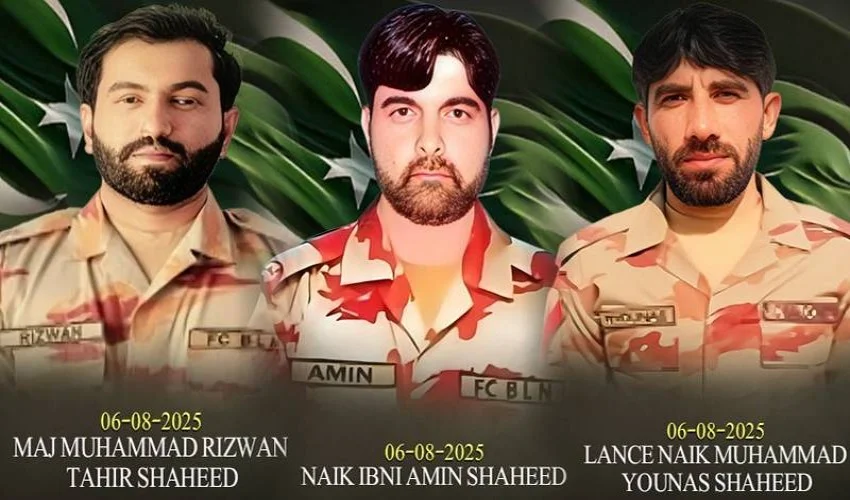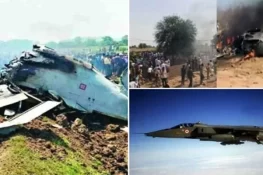Deadly Attack on Security Forces in Balochistan
In a tragic incident in Pakistan’s restive Balochistan province, three soldiers, including a senior officer, were martyred when their military vehicle was targeted with a remote-controlled improvised explosive device (IED).
The attack occurred in the Mastung district, a region that has seen frequent militant violence in recent years. According to the Inter-Services Public Relations (ISPR), the media wing of the Pakistan Armed Forces, the blast struck a vehicle carrying troops during a routine patrol.
Among the martyrs was Major Muhammad Rizwan Tahir, a 31-year-old officer from Narowal. He was joined in martyrdom by Naik Ibn-e-Ameen, aged 37 from Swabi, and Lance Naik Muhammad Younis, aged 33 from Karak.
Profiles of the Fallen Soldiers
The military offered tributes to the fallen men, describing them as brave, committed, and dedicated to their duty.
-
Major Muhammad Rizwan Tahir, aged 31, had led several successful counter-terrorism operations. Known for his courage, he consistently remained on the front lines alongside his men.
-
Naik Ibn-e-Ameen, 37, hailed from Swabi in Khyber Pakhtunkhwa.
-
Lance Naik Muhammad Younis, 33, was from Karak district and served the Pakistan Army with distinction.
The ISPR statement emphasized that these soldiers gave their lives to defend the country and protect citizens from the threat of terrorism.
Immediate Response: Clearance Operation and Militants Killed
Following the attack, security forces launched a rapid clearance operation in the surrounding area. As a result, four militants were killed, according to the ISPR.
The operation is part of the military’s broader counter-terrorism campaign in Balochistan, which continues to face a complex insurgency involving local separatists, religious militants, and foreign-backed elements.
The ISPR reiterated that the military remains determined to eliminate all forms of terrorism from the country. Operations in the region will continue until complete peace and stability are restored.
A Region Long Marred by Conflict
Balochistan, Pakistan’s largest but least populated province, has witnessed decades of unrest. The region is strategically significant, sharing borders with Iran and Afghanistan, and home to the Gwadar Port, a key part of the China-Pakistan Economic Corridor (CPEC).
However, it has also become a hotbed of violence, with frequent attacks targeting security personnel, infrastructure projects, and civilians.
According to the Pakistan Institute for Conflict and Security Studies (PICSS), over 200 security personnel were martyred in terrorist attacks across the country in 2024, with Balochistan accounting for a significant share.
Cross-Border Concerns and India’s Alleged Involvement
The ISPR, without naming specific evidence, pointed to foreign involvement, particularly from Indian-backed elements, in fuelling unrest in Balochistan. The military has made similar claims in the past, accusing Indian intelligence agencies of supporting militant factions to destabilize Pakistan.
Such allegations have been a consistent point of diplomatic tension between Islamabad and New Delhi, especially in the context of regional security and cross-border militancy.
Continued Resolve Against Terrorism
The attack in Mastung is a grim reminder of the ongoing sacrifices of Pakistan’s security forces in the fight against terrorism. Despite setbacks, the military insists it remains resolute in its mission to secure the country.
“The sacrifices of our brave soldiers will not go in vain,” the ISPR stated. “The Pakistan Army stands committed to eradicating the menace of terrorism from every corner of the nation.”
As the region continues to face threats, the security apparatus remains on high alert, determined to respond with strength and precision.















